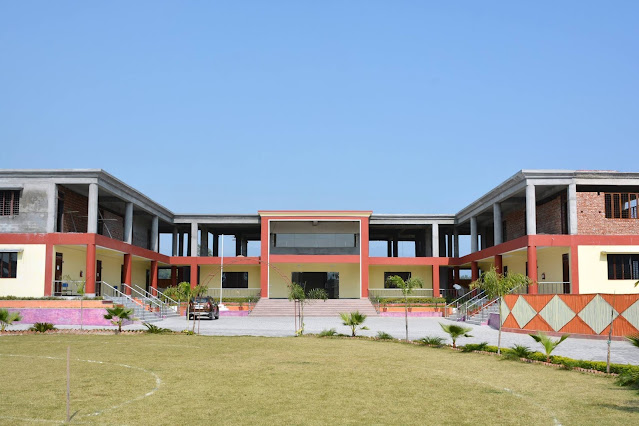DIY Toddler Puzzles: Creative and Educational Fun
Toddlers are curious explorers, constantly seeking new ways
to engage with the world around them. As parents and caregivers, Brain Discovery Global School
strive to provide them with enriching experiences that not only entertain but
also stimulate their developing minds. DIY toddler puzzles offer a fantastic opportunity to combine
creativity with education, fostering cognitive development in a fun and
interactive way. In this blog post, we'll explore the benefits of toddler puzzles and
provide creative ideas for making your own at home.
The Importance of Puzzles for Toddlers:
Before delving into the world of DIY toddler puzzles, let's
first understand why puzzles are essential for a toddler's development.
Cognitive Skills: Puzzles help toddlers develop
critical cognitive skills such as problem-solving, spatial awareness, and
pattern recognition.
Fine Motor Skills: As toddlers manipulate puzzle
pieces, they enhance their fine motor skills, refining their ability to grasp,
pinch, and fit pieces together.
Hand-Eye Coordination: The act of coordinating their
hands and eyes to complete a puzzle strengthens this fundamental skill, which
is crucial for various activities later in life.
Spatial Awareness: Puzzles encourage toddlers to
understand how different pieces relate to each other in space, promoting
spatial intelligence.
Patience and Persistence: Completing a puzzle
requires patience and persistence, teaching toddlers the value of sticking with
a task until it's finished.
DIY Toddler Puzzles: Creative and Educational Ideas:
Now, let's explore some imaginative and educational DIY toddler puzzle ideas
that you can easily create at home.
Cardboard Shape
Puzzle:
Materials: Cardboard, markers, scissors.
Instructions: Draw and cut out simple shapes on a piece of
cardboard. Color each shape with vibrant markers. Toddlers can match shapes and
colors, enhancing their visual discrimination skills.
Photo Family
Puzzle:
Materials: Family photos, cardboard, glue, scissors.
Instructions: Print out small family photos and glue them
onto cardboard. Cut the cardboard into puzzle pieces. This personalized puzzle
not only teaches recognition but also reinforces the concept of family.
Name Recognition
Puzzle:
Materials: Craft foam, markers, scissors.
Instructions: Write the toddler's name on a piece of craft
foam and cut it into individual letters. Toddlers activities to can
rearrange the letters to spell their name, promoting letter recognition and
early literacy skills.
Nature-inspired
Puzzle:
Materials: Pressed leaves, contact paper, cardboard.
Instructions: Arrange pressed leaves on contact paper and
stick it onto cardboard. Cut the cardboard into puzzle pieces. This puzzle
connects toddlers with nature while encouraging them to explore different
shapes and textures.
Number Counting
Puzzle:
Materials: Cardboard, markers, stickers.
Instructions: Draw a series of circles on cardboard and
number them. Add stickers with corresponding numbers to create a counting
puzzle. This activity introduces toddlers to basic numeracy concepts.
Conclusion:
DIY toddler puzzles offer a
delightful combination of creativity and education. As you engage your little one
in these activities, you not only provide them with hours of entertainment but
also contribute to their cognitive, motor, and social development. The beauty
of these puzzles lies in their simplicity and adaptability, making them perfect
for at-home learning. So, gather your materials, unleash your creativity, and
watch as your toddler discovers the joy of learning through play. Brain Discovery Global School
ensuring the safety and well-being of young children is a top priority. Schools
often have safety measures and protocols in place. Pre-primary schools
encourage parents to be actively involved in their child's education through
parent-teacher meetings, events, and activities. Brain Discovery Global School
offer age-appropriate curriculum that encompass various aspects of development,
including language and literacy, math, science, social studies, and creative
arts.
.jpg)
.jpg)

.jpg)

Comments
Post a Comment